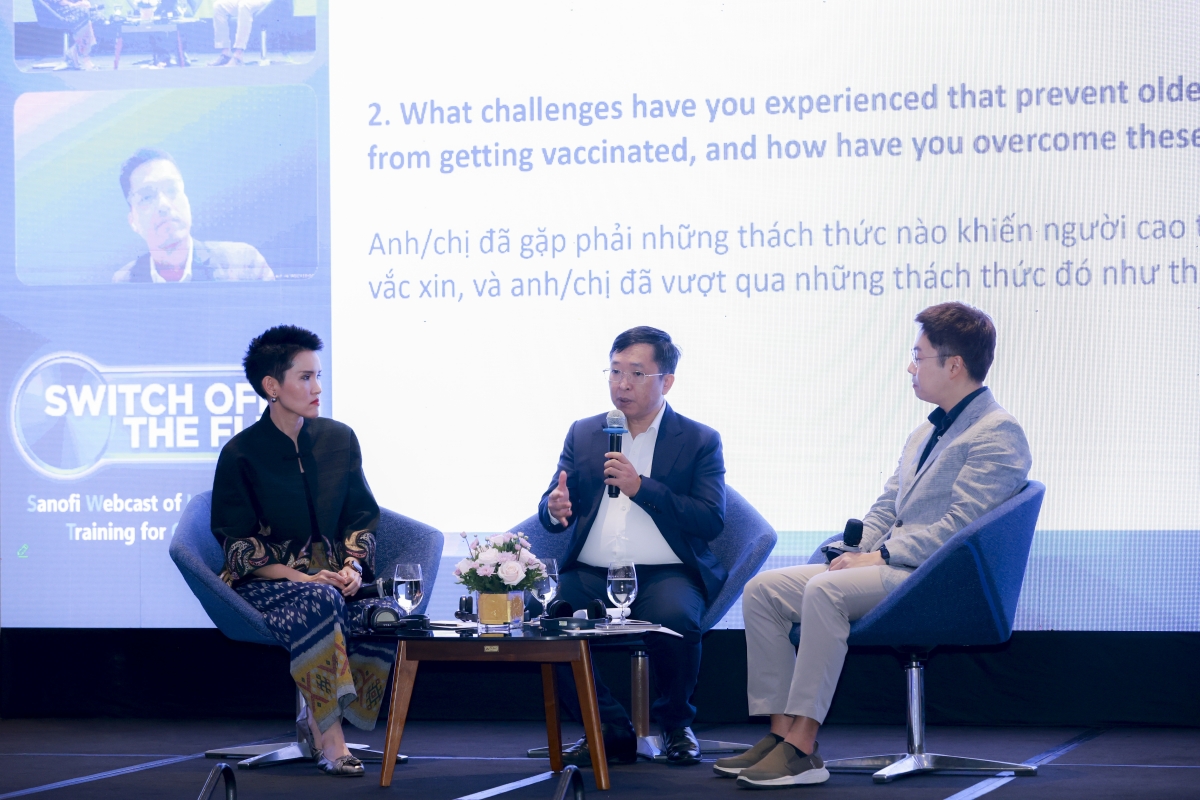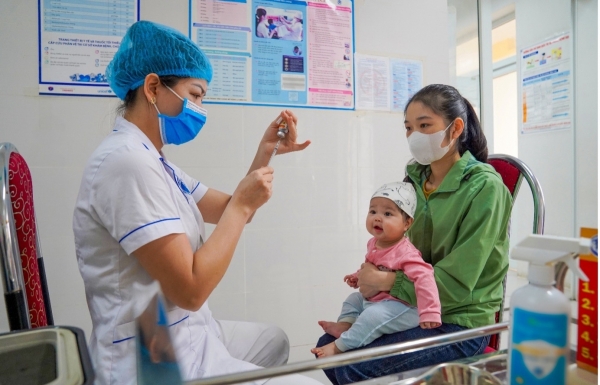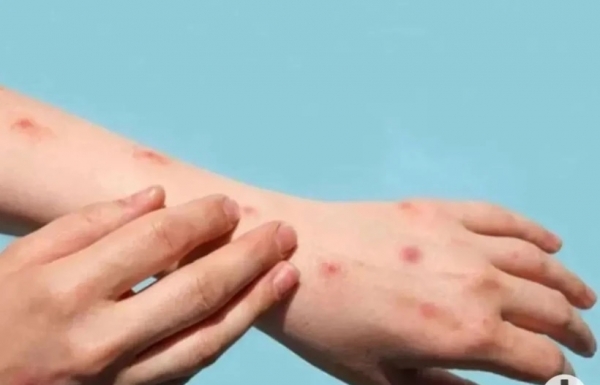INTERNATIONAL INVESTMENT
AND PORTAL
The event contributed to promoting multi-sectoral dialogue and enhancing public awareness, in the context that the World Health Organization (WHO) has identified dengue as one of the top 10 global health threats, warning that nearly half of the world’s population, about 3.9 billion people, is at risk of dengue virus infection.
Each year, approximately 500,000 cases require hospitalisation and up to 25,000 people die globally from this disease.
In response, the WHO has set a global goal of achieving zero dengue deaths by 2030, as outlined in the Global Strategy for Dengue Prevention and Control. This strategic roadmap emphasises critical actions, including early outbreak detection and response, sustainable vector control, community engagement, and efficient vaccine deployment.
 Photo: Health & Life newspaper
Photo: Health & Life newspaper
Hosted by Health & Life newspaper, in collaboration with Takeda Vietnam Pharmaceuticals, the talk show featured leading experts in epidemiology, treatment, and preventive medicine. They analysed the current status of dengue in Vietnam, outlined emerging challenges, and proposed integrated strategies tailored to the country’s evolving epidemiological context.
Dengue fever remains one of the infectious diseases causing a significant burden in Vietnam. Not only does the number of cases fluctuate in the hundreds of thousands each year, but the disease is also becoming increasingly unpredictable. It occurs year-round across wide areas, and carries risks of severe complications, even death, if not detected and treated in time.
According to the Ministry of Health, Vietnam has recorded 22,974 dengue cases and five deaths as of mid-2025, with fatalities reported in Binh Duong, Binh Thuan, Ho Chi Minh City, Khanh Hoa, and Ninh Thuan. This indicates that risks remain present, especially in the context of overlapping outbreaks such as dengue, hand-foot-and-mouth disease, and COVID-19 increasing in some localities.
Dr. Vo Hai Son, deputy director of the Vietnam Administration of Disease Prevention under the Ministry of Health stated that no single force can tackle the issue alone, and a synchronised approach is essential.
"Government agencies play the role of coordinators and policymakers; the community is the frontline in actively detecting, treating the disease early, and addressing small outbreaks through vector control measures right at the household level, especially in high-risk areas,” Son said.
Enterprises contribute by providing medical solutions, communication, and training; while the media serves as a vital bridge to deliver accurate and timely information to every citizen, he added.
"Only when all these stakeholders act proactively, in unity and with persistence, can the epidemic control strategy be truly effective,” he said.
To minimise fatalities and effectively control outbreaks, experts emphasise the need for a comprehensive strategy, including vector control, epidemiological surveillance, early warning systems, behaviour change communication, and strengthening of the healthcare system’s capacity.
Among these, vaccinations validated by the WHO is an integral part of the overall approach, aiding proactive prevention and reducing the risk of severe disease.
Assoc. Prof. Dr. Pham Quang Thai, vice head of Infectious Diseases Control Department, National institute of Hygiene and Epidemiology said that, in addition to the conventional detection and response approach, Vietnam needs to shift to a forecast and prevention model to keep up with changes in the epidemic’s cycles and geographic distribution.
"As the disease is no longer seasonal and can break out at any time throughout the year, investing in active surveillance systems, data analysis, and early warning mechanisms is key to controlling outbreaks effectively,” Thai said. “This calls for a comprehensive approach to proactive prevention, including mosquito control and reducing community transmission, followed by vector management and strengthening immunity through proactive vaccination."
Beyond climate extremes and urbanisation, public underestimation of the disease remains troubling. Assoc. Prof. Dr. Do Duy Cuong, director of Bach Mai Institute of Tropical Medicine, emphasised that in addition to extreme weather conditions and rapid urbanisation, public complacency regarding the severity of the disease is also a major concern.
"Many people still underestimate dengue fever, believing it is only dangerous when accompanied by high fever or visible bleeding. As a result, they delay seeking medical attention,” Cuong said.
He explained that in reality, bleeding often occurs only when platelet levels drop significantly. With no clear symptoms shown in some cases, patients arrive at the hospital late, already in shock or suffering from multiple organ failure, which can be fatal.
“Early detection and timely treatment save lives. As both a doctor and a survivor of dengue fever, I deeply understand the burden and complications of this disease. Today, vaccination stands among preventive measures, offering a new approach to address the complex nature of dengue fever,” he noted.
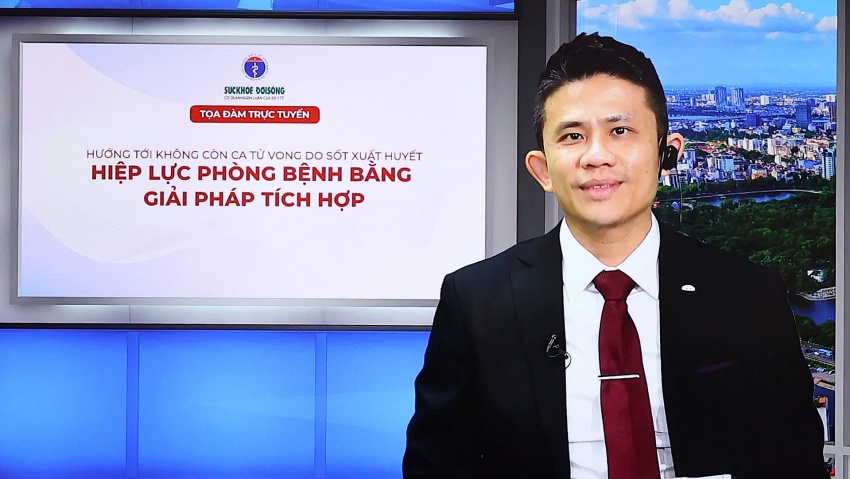 Benjamin Ping, general manager of Takeda Vietnam Pharmaceuticals
Benjamin Ping, general manager of Takeda Vietnam Pharmaceuticals
Benjamin Ping, general manager of Takeda Vietnam Pharmaceuticals shared that effective control requires a multi-sectoral approach, bringing together the government, healthcare sector, businesses, and communities, under a comprehensive strategy.
"This includes strengthening healthcare capacity, raising public awareness about the dangers of dengue through collaborative community programmes with relevant ministries and agencies, and ensuring a sustainable vaccine supply for the people of Vietnam," Ping said.
In the past year, Takeda Vietnam has cooperated with medical associations and central hospitals to organise 40 scientific conferences and symposia on dengue fever, updating the latest knowledge on pathogenesis, diagnosis, treatment, and prevention, with more than 8,000 attendances from doctors, nurses, and preventive medicine officers.
The WHO is currently recommending the use of Takeda’s dengue vaccine for certain populations in countries with high transmission rates and significant dengue burden. This vaccine has been approved in 40 countries, with over 15 million doses distributed globally.
 Experts discuss dengue fever prevention in Vietnam
Experts discuss dengue fever prevention in Vietnam
Takeda, a global biopharmaceutical company, hosted a series of meetings in Ho Chi Minh City and Hanoi on September 26-27 to discuss the essential role of vaccines in an integrated dengue prevention strategy in Vietnam and globally.
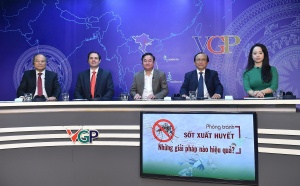 Integrated solutions for dengue fever prevention in Vietnam
Integrated solutions for dengue fever prevention in Vietnam
Dengue vaccines being available in Vietnam contributes to strengthening the prevention and control strategy for this infectious disease, but synchronised implementation of multiple solutions is needed to ensure vaccine sustainability.
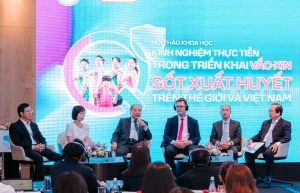 Concerns mount over potential dengue fever outbreaks
Concerns mount over potential dengue fever outbreaks
At a recent scientific symposium on dengue vaccines in Ho Chi Minh City, experts warn that dengue fever is shifting from a seasonal outbreak to a year-round public health threat, with treatment costs in some cases approaching $40,000.


